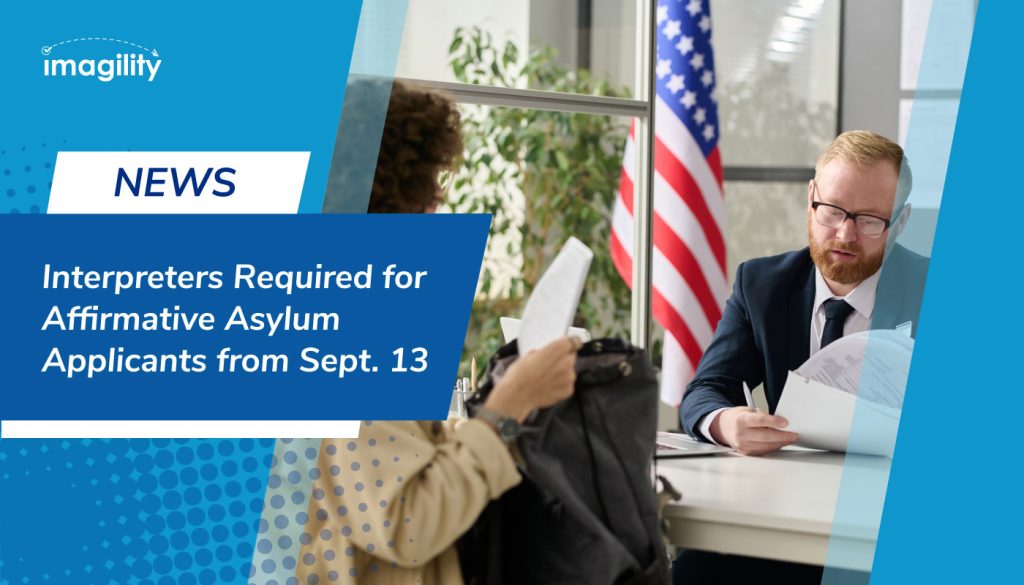Starting from September 13, 2023, affirmative asylum applicants, who are not proficient in English or prefer to conduct the interview in a language other than English, must bring an interpreter with them during the asylum interview, as per the regulations laid out by the U.S. Citizenship and Immigration Services.
Failure to provide an interpreter who is not proficient in English and your native language without reasonable justification may cause failure to appear for the interview. In such cases, your asylum application could be dismissed or referred to an immigration judge. The determination of valid reasons will be made on a case basis.
For the role of interpreter, it is essential to possess fluency in English and the language you speak, and the interpreter must be at least 18 years old. Additionally, he mustn’t be:
- A lawyer or accredited representative,
- A witness providing testimony on your behalf,
- An employee or representative of the government of your country of origin
- An individual who has applied for asylum but has not yet undergone an interview
On September 23, 2020, USCIS released a temporary final rule mandating that affirmative asylum applicants use contracted telephonic interpreters for their interviews instead of bringing their interpreters. The goal was to limit the spread of COVID-19 during these interviews while the national emergency was in place.
Over the next few months, USCIS released four extensions to the rule, with the latest one lasting until September 12, 2023. This fourth extension gave USCIS more time to prepare to return to the original regulatory requirement once the emergencies expired. As the temporary rule is now set to expire, USCIS will return to the long-standing regulation of affirmative asylum applicants providing their interpreter under 8 CFR 208.9(g).
Source- USCIS*














